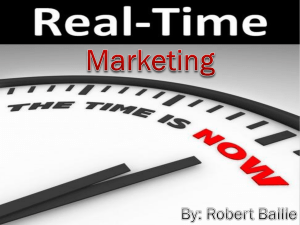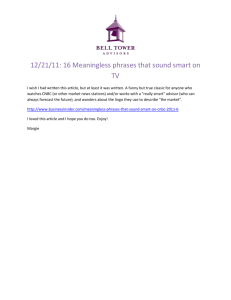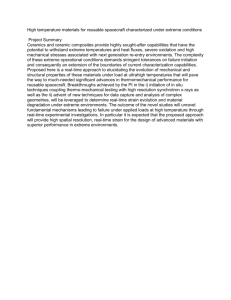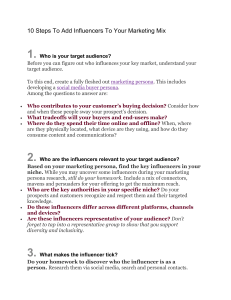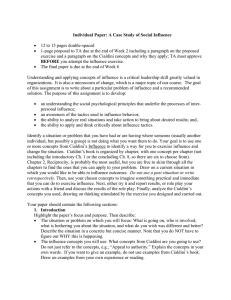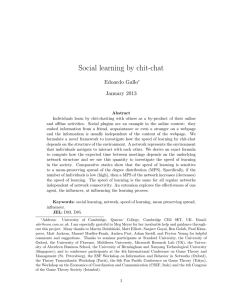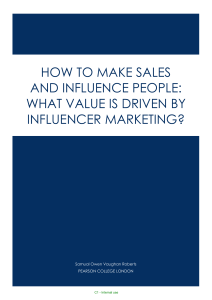The Application Domain: Energy Sustainability Jason Zietz Holger Dick
advertisement
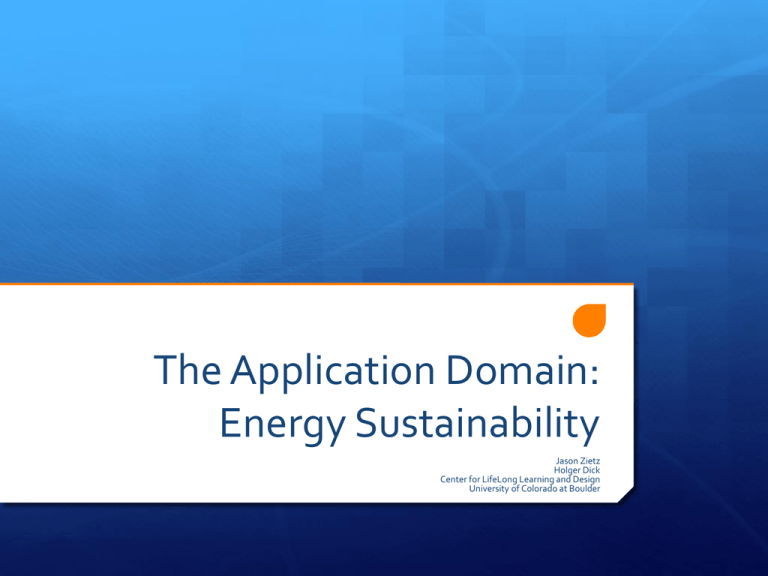
The Application Domain: Energy Sustainability Jason Zietz Holger Dick Center for LifeLong Learning and Design University of Colorado at Boulder Why Does Energy Consumption Need To Be Addressed? Energy ecosystem in crisis Consumers are largely unaware how they impact the environment Energy Domain Developments Smart Meters Measure energy consumption in real-time Turn invisible consumption to computational data Smart Grid System around smart meters and modern infrastructure Creates a network of energy consumers and producers Dynamic distribution and production of energy Allows for dynamic pricing Faster reaction-times in case of black-outs Enables cultures of participation Impacts of Indirect vs. Direct Feedback Source: Ehrhardt-Martinez et al. (2010) Advanced Metering Initiatives and Residential Feedback Programs: A Meta-Review for Household Electricity-Saving Opportunities Enhanced Billing Paper or email bills with additional information Estimated Feedback Web-based energy audits Household type Appliance Information Billing analysis Daily/Weekly Feedback Xcel Energy Real-Time Feedback Wattvision (http://www.wattvision.com/) The Energy Detector (TED) Real-Time Plus Feedback Kill-a-watt Tendril Volt Belkin Conserve Insight Research Questions We Are Exploring Is the data alone motivating enough for people to change their behavior? What do people care about more – saving a little money every month or making a larger impact on the environment? Hypothesis: Gadgets Alone Are Not Enough How can we help consumers learn how to reduce their energy usage? Can we leverage social influencers to motivate consumers to reduce their energy usage? Inspirations from Cialdini, R. (2009) Influence: Science and Practice How can we create opportunities for informal learning by fostering and supporting a culture of participation in the energy domain? Motivation Intrinsic Motivation Desire to help the environment Need to better understand one’s energy use Extrinsic Motivation What are my friends doing to help the environment? What are my neighbors doing to help the environment? Influencer: Social Proof People observe and follow other people’s behavior in state of uncertainty Observations of others choosing certain behaviors and actions serve as proof that these behaviors and actions are good Influencer: Social Norms People want to be normal People try to be and act as the perceived “normal” or average person does Being different than the average is bad, even when being different in a good way (Schultz et al (2007) “The Constructive, Destructive, and Reconstructive Power of Social Norms”) Influencer: Peer Pressure People don’t want to offend or publicly disagree with peers People feel that others judge them and their actions and try to fulfill the other’s perceived expectations Social Influences: A Caveat Descriptive versus Injunctive Norms (Cialdini, 2003) http://www.youtube.com/watch?v=j7OHG7tHrNM Competition “When people operate with the goal of trying to win, the controlling aspect of competition becomes more salient than the informational aspect and will…tend to decrease people’s intrinsic motivation.” (Deci, et al. 1981) Ubiquitous Data and Devices Given the proliferation of computational devices and the nearly unbounded access to data, consumers are more likely now than in the past to interact with their “energy data” Any system we design should be accessible regardless of time and place Our Proposed System: EMPIRE Influences People Use Energy Feedback Systems In-Home Displays Websites Energy Consumption Using existing systems Smart Meter Sends Usage Data to Server Traditional: Mobile Apps Using existing systems Energy Data EMPIRE Proposed: Meaningful Information Proposed: Energy Data Makes Data Meaningful Computer Science Learning Sciences Behavioral Sciences Research Questions To Be Explored How many people are willing to interact with real-time feedback? Do people want even daily or weekly feedback? How can we achieve the maximum impact? Less people saving more or more people saving less? Can we let consumers decide? Provide as much or as little feedback as a customer wants
